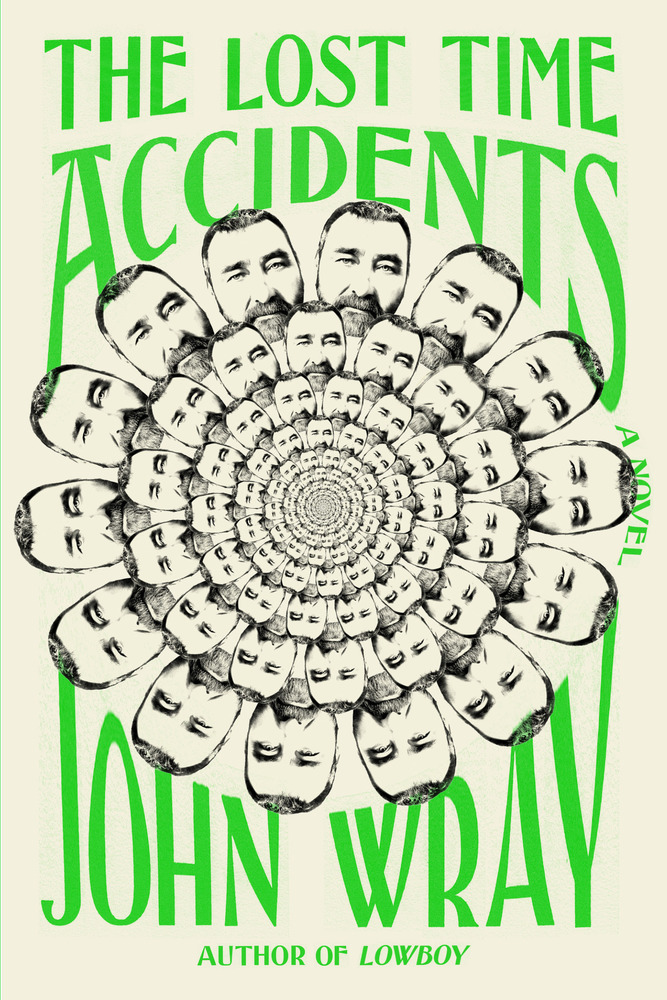Interview: John Wray
 Midwestern Gothic staffer Rachel Hurwitz talked with author John Wray about his book The Lost Time Accidents, time travel, representing mental illness, and more.
Midwestern Gothic staffer Rachel Hurwitz talked with author John Wray about his book The Lost Time Accidents, time travel, representing mental illness, and more.
**
Rachel Hurwitz: What’s your connection to the Midwest?
John Wray: I spent five years in Ohio, attending Oberlin College and then just hanging around. I was one of those questionable characters who had so much fun in college that they didn’t want to leave.
RH: You’re a citizen of both the United States and Austria. How do you think this has affected your writing style and what you write about?
JW: I think it’s had an effect on pretty much every aspect of my life and personality, to be honest. It made certain things more difficult, growing up—I had a hard time separating English and German, as a small child, and was in the remedial reading group in school until the third grade—but having seen that there places outside of the United States where people had very different ways of looking at things encouraged a critical view of America (and, of course, of Austria as well) from a very young age. Once I’d gotten over my confusion, that is.
RH: Additionally, what made you choose to attend Oberlin College to study biology during your undergraduate career? Because of this, what does the Midwest mean to you?
JW: Buffalo, New York, where I was raised, has more in common with Chicago, for example, than with New York City, culturally speaking—once I’d moved to Ohio, I began to see my hometown as a curious extension of the midwest. (Later I learned that this was largely due to the flow of trade via the Great Lakes to the Erie Canal back in the city’s heyday.) To be honest, I chose Oberlin because Oberlin chose me—I was a terrible student in high school, a very depressed and angry kid, and was incredibly fortunate to be accepted there. I’m not sure what or where I’d be today if I hadn’t had that stroke of luck. Oberlin had an enormous influence on every aspect of my worldview, from politics to aesthetics to my taste in pop music. I can’t praise it enough. No wonder I had such a hard time leaving!
RH: In your newest novel, The Lost Time Accidents, the protagonist, Walter, has been “exiled from the flow of time.” How did this flexibility in location and time lend itself to your creativity in writing the novel?
JW: It was both tremendously freeing—anything can happen! the customary rules and regulations don’t apply!—and more difficult for that same reason. The great challenge to writing a novel in which past and present and future need not follow meekly one after another is to make sure that the experience isn’t confusing or simply frustrating for the reader. It needs to be exciting, liberating—and, above all, entertaining. Time travel should be fun, as well as a little frightening.

RH: In The Lost Time Accidents it is mentioned “chronology is an illusion, if not a deliberate lie,” which sounds slightly similar to thoughts in Kurt Vonnegut’s Slaughterhouse-Five. Did you intend for any similarities between these two novels?
JW: Absolutely. I’ve loved Vonnegut since grade school–the first novel of his that I read, appropriately enough, was ‘Venus on the Half Shell,’ which he wrote pseudonymously, as one of his own characters, the science fiction author Kilgore Trout. Trout was a significant influence on Orson Tolliver, the ‘starporn’-penning character in The Lost Time Accidents—and most of all, the obvious joy Vonnegut took in creating (and, later, impersonating) a cantankerous writer of questionable merit. My novel is many things at once, more or less by design; and one of them is certainly an homage to Vonnegut, among many other beloved authors of my youth.
RH: Your novel Lowboy follows a schizophrenic protagonist through the New York Subway system and mental illness seems to plague the characters in The Lost Time Accidents as well. Why does mental illness play a prevalent role in your works?
JW: One of the aspects of the human experience that fiction can explore most effectively—far more effectively, in my opinion, than film or theater or visual art—is subjectivity. The question, so central to consciousness, of where the boundary between consensus reality and our biased understanding of it lies, is the territory of the novel, and has always been a fascinating one for me. It may be what drew me to fiction in the first place. And madness is, in a certain sense, the most extreme expression of this question.
RH: What is the most difficult facet of the writing process for you? How do you manage or deal with this difficulty?
JW: Dear lord—is it possible to answer ‘everything’? I don’t find any part of the writing process easy, to be honest. My goal is always to write books that feel as though they wrote themselves, but certainly that couldn’t be farther from the case. I’m weeping tears of self-pity as I write this. Boo hoo!
RH: What’s next for you?
JW: The beach! After seven years of writing this book, I need to relearn how to be a human being. Humans like to go to the beach, right?
**
John Wray is the author of The Lost Time Accidents, Lowboy, Canaan’s Tongue, and The Right Hand of Sleep. The recipient of a Guggenheim Fellowship, a Whiting Award, and a Mary Ellen von der Heyden Fellowship from the American Academy in Berlin, he was named one of Granta‘s Best Young American Novelists in 2007. A citizen of the United States and Austria, he currently lives in New York City.






